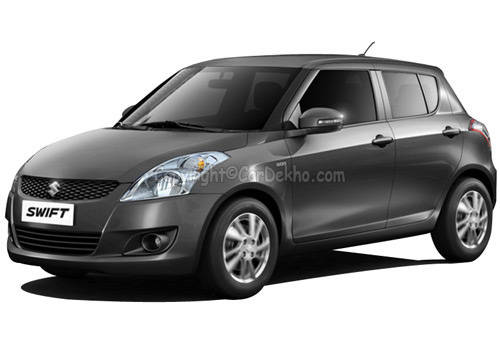Maruti Suzuki brings down CO2 emission by 15% in car manufacturing – Sustainability Report 2010-11
Published On Nov 16, 2011 03:24 PM By Meenal
- Write a comment
Maruti Suzuki India Limited today released its Sustainability Report 2010-11. The report states that the company has significantly brought down CO2 emission per vehicle in car manufacturing. At the Gurgaon Plant, CO2 per vehicle in 2010-11 came down by 15% compared to the previous year while in Manesar facility, CO2 emission reduced by 13% during the year.The report, besides capturing the Company’s economic performance, gives a detailed view of its social and environmental performance during the year.

See More New Maruti Swift Pictures Read More on New Maruti Swift
The report is prepared as per the international Global Reporting Initiative (GRI) guidelines, and has an A+ rating.The report mentions that the company spent Rs. 152 million on social responsibility projects in 2010-11, an increase of 34.5% over the previous year. Maruti Suzuki brought down CO2 emission per vehicle during manufacturing through a series of initiatives, including use of Natural Gas instead of Propane in the manufacturing processes. Besides, the Company uses Natural Gas for power generation, which further limits CO2 emission. The use of waste fuel of turbines to generate steam and compressed air also helped bring down CO2 emission per vehicle, the report said. The Sustainability Report 2010-11 also disclosed that the Company had registered its first Clean Development Project with the UN Framework for Climate Change. This is likely to generate carbon credits for the Company.

See More Maruti SX4 Pictures Read More on Maruti SX4
In a significant initiative, a part of the hazardous waste generated at the Plants is being sent to the cement industry where it is utilized for co-processing. “Use of hazardous waste for co processing in the cement industry has eliminated the need for incineration and land filling,” the report states.The hazardous waste being sent includes paint sludge, phosphate sludge and ETP sludge. In all, 6,447 tonnes of such waste was sent for recycle/use in the cement industry in 2010-11, the first year of this initiative. The present landfills are also being emptied out, enabling efficient use of land within the facilities.The Company was able to bring down per vehicle water consumption as well. While the Gurgaon facilities saw a reduction of 5% in water consumption per vehicle produced, the Manesar Plant achieved a 16% reduction in per vehicle water consumption during 2010-11.Of the total water requirement of the company, 42% was met through recycled and reused water in 2010-11. Such initiatives enable the facilities to remain zero water discharge factories.During the year the company launched five models in i-GPI CNG technology demonstrating its commitment to offer its customers green products. The Company also showcased hybrid and electric car technology in SX4 and Eeco vehicles respectively.

See More Maruti Kizashi Pictures Read More on Maruti Kizashi
The End of Life Vehicles (ELV) regulation, yet to be implemented in India, aims at eliminating hazardous substances like Lead, Cadmium, Mercury and Hexavalent Chromium from vehicles. The Company has voluntarily taken measures to implement ELV at the model development stage and has made almost all its models ELV-compliant. During the year, 43 additional components were made ELV compliant across models.Employee volunteers remained the driving force behind the Company’s social programmes. They contributed about 2792 volunteer hours, at 24 volunteering centres. Road Safety is Maruti Suzuki’s flagship national programme for the society. The Company and its partners promote Road Safety by imparting driving training, awareness and advocacy.

See More Maruti Kizashi Pictures Read More on Maruti Kizashi
The number of Maruti Driving Schools, set up and managed by the Company’s dealer partners, doubled to 166 during 2010-11. The Company also imparts driving training through Institutes of Driving Training and Research (IDTR), set up in partnership with state governments. These IDTRs trained 70,000 people during 2010-11. The Company tied up with four Industrial Training Institutes (ITIs) during the year and is now partnering seven ITIs in different parts of the country to promote their upgradation and student placement. This includes two ITIs exclusively for women. The Company works closely with communities in four villages at Manesar. It runs education support centres, a computer literacy centre and vocational training programmes including driving training, besides upgrading school infrastructure in these villages.














